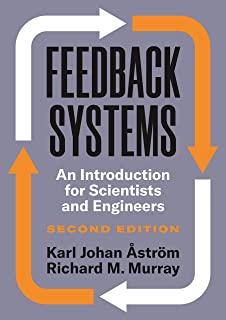
Åström, Karl Johan
product information
description
7
The essential introduction to the principles and applications of feedback systems--now fully revised and expanded
This textbook covers the mathematics needed to model, analyze, and design feedback systems. Now more user-friendly than ever, this revised and expanded edition of Feedback Systems is a one-volume resource for students and researchers in mathematics and engineering. It has applications across a range of disciplines that utilize feedback in physical, biological, information, and economic systems. Karl Åström and Richard Murray use techniques from physics, computer science, and operations research to introduce control-oriented modeling. They begin with state space tools for analysis and design, including stability of solutions, Lyapunov functions, reachability, state feedback observability, and estimators. The matrix exponential plays a central role in the analysis of linear control systems, allowing a concise development of many of the key concepts for this class of models. Åström and Murray then develop and explain tools in the frequency domain, including transfer functions, Nyquist analysis, PID control, frequency domain design, and robustness.- Features a new chapter on design principles and tools, illustrating the types of problems that can be solved using feedback
- Includes a new chapter on fundamental limits and new material on the Routh-Hurwitz criterion and root locus plots
- Provides exercises at the end of every chapter
- Comes with an electronic solutions manual
- An ideal textbook for undergraduate and graduate students
- Indispensable for researchers seeking a self-contained resource on control theory
member goods
No member items were found under this heading.
Return Policy
All sales are final
Shipping
No special shipping considerations available.
Shipping fees determined at checkout.







